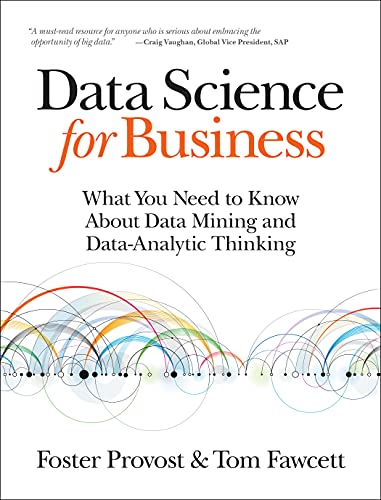An Overview Of Business Mathematics Books

- 1. An Overview Of Business Mathematics Books
- 1.1. Understanding Business Mathematics
- 1.2. Key Components of Business Mathematics Books
- 1.2.1. Financial Mathematics
- 1.2.2. Accounting Mathematics
- 1.2.3. Statistical Analysis
- 1.2.4. Operations Research
- 1.2.5. Economics
- 1.3. Importance of Business Mathematics Books
- 1.4. Popular Business Mathematics Books
- 1.4.1. "Business Mathematics" by Gary Clendenen and Stanley A. Salzman
- 1.4.2. "Business Mathematics" by Cheryl Cleaves, Margie Hobbs, and Jeffrey Noble
- 1.4.3. "Business Math For Dummies" by Mary Jane Sterling
- 1.4.4. "Mathematics for Economics and Business" by Ian Jacques
- 1.4.5. "Essential Mathematics for Economics and Business" by Teresa Bradley
- 1.4.6. "Practical Business Math Procedures" by Jeffrey Slater and Sharon Wittry
Business mathematics plays a crucial role in facilitating informed decision-making, scrutinizing financial data, and navigating the intricacies of economic transactions. To explore this domain, individuals should refer to business mathematics books, which are comprehensive resources meticulously crafted to empower them with the fundamental skills and knowledge necessary for success in the business world.
Understanding Business Mathematics
Business mathematics involves the application of a diverse set of mathematical principles and methods tailored for business and economic contexts. These principles cover various areas such as accounting, finance, economics, statistics, and operations research. The significance of business mathematics is evident in the comprehensive guides provided by relevant books, which furnish readers with detailed explanations, real-life illustrations, and exercises to enhance comprehension.
Key Components of Business Mathematics Books
Financial Mathematics
Financial mathematics forms the bedrock of business calculations and decision-making. These books cover concepts like interest rates, compound interest, annuities, and present value. Readers delve into the intricacies of investment analysis, risk management, and the time value of money. Financial mathematics equips individuals with the tools to evaluate investment opportunities, make informed financial decisions, and understand the financial implications of various choices.
Accounting Mathematics
Accurate financial records are the lifeblood of any successful business. Business mathematics books often include sections on accounting, covering principles such as balance sheets, income statements, and cash flow statements. Readers gain insights into financial analysis, allowing them to interpret financial statements effectively. Mastery of accounting mathematics is crucial for making informed decisions, assessing a company's financial health, and developing strategies for financial growth.
Statistical Analysis
Statistics is a powerful tool for analyzing and interpreting data, providing valuable insights into trends and patterns. Business mathematics books explore statistical methods for data analysis, probability theory, regression analysis, and hypothesis testing. Proficiency in statistical analysis enables individuals to make evidence-based decisions, forecast future outcomes, and understand the uncertainties inherent in various business scenarios.
Operations Research
Efficient and effective business operations are essential for success. Operations research, a key component of business mathematics, introduces concepts such as linear programming, queuing theory, and inventory management. These mathematical models help streamline processes, optimize resource allocation, and enhance overall productivity. Professionals equipped with operations research skills can identify areas for improvement, implement cost-effective solutions, and contribute to the organization's overall efficiency.
Economics
A solid understanding of economic principles is vital for navigating the dynamic business environment. Business mathematics books often include sections on microeconomics and macroeconomics, providing insights into market dynamics, supply and demand, and economic indicators. This knowledge enables individuals to comprehend the broader economic context, anticipate market trends, and make strategic decisions aligned with economic conditions.
Importance of Business Mathematics Books
- Practical Application: Business mathematics books bridge the gap between theoretical knowledge and practical application. They provide real-world examples and case studies, allowing readers to apply mathematical concepts to actual business scenarios.
- Decision-Making: In the fast-paced world of business, quick and informed decision-making is critical. Business mathematics books equip individuals with the tools to analyze data, assess risks, and make strategic decisions that contribute to the success of an organization.
- Professional Development: For students pursuing careers in business, these books serve as essential resources for academic success and professional development. Professionals already in the workforce can use them to enhance their skills and stay abreast of industry trends.
Popular Business Mathematics Books
"Business Mathematics" by Gary Clendenen and Stanley A. Salzman
This comprehensive textbook is widely used in academic settings and covers a broad range of business math topics. From basic arithmetic and algebra to more advanced concepts like statistics and financial mathematics, the authors provide clear explanations and practical examples. The book also includes real-world case studies to demonstrate how mathematical principles are applied in business scenarios.
"Business Mathematics" by Cheryl Cleaves, Margie Hobbs, and Jeffrey Noble
Aimed at college-level students and professionals, this book offers a practical approach to business mathematics. It covers essential topics such as ratio analysis, markup, discount, interest, and annuities. The authors use a step-by-step problem-solving methodology, making it accessible for readers with varying levels of mathematical proficiency.
"Business Math For Dummies" by Mary Jane Sterling
The 'For Dummies' series is renowned for simplifying complex topics, and this book is no exception. Mary Jane Sterling breaks down business mathematics into digestible chunks, providing practical examples and exercises. This book is an excellent choice for those who may feel intimidated by the subject, offering a friendly and approachable introduction to business math concepts.
"Mathematics for Economics and Business" by Ian Jacques
Geared towards students studying economics or business at the university level, this book combines mathematics with economic and business applications. Ian Jacques introduces mathematical concepts in a business context, emphasizing their relevance in decision-making. The book covers calculus, optimization, and linear programming, providing a strong foundation for those entering quantitative fields.
"Essential Mathematics for Economics and Business" by Teresa Bradley
This book caters to the needs of students and professionals in economics and business. Teresa Bradley focuses on developing mathematical skills in the context of practical applications. The book covers a range of topics, including algebra, calculus, and optimization, making it a comprehensive resource for anyone seeking to strengthen their mathematical foundation for business-related disciplines.
"Practical Business Math Procedures" by Jeffrey Slater and Sharon Wittry
Known for its practical approach, this book is widely used in business schools and vocational training programs. It covers essential topics such as payroll, banking, and financial statements. The authors include real-world examples, Excel applications, and interactive exercises, making it a valuable resource for those looking to apply mathematical concepts directly to business scenarios.
In conclusion, business mathematics books are essential resources for individuals aiming to comprehend the complex network of mathematical principles in the business realm. These publications offer a thorough groundwork, encompassing financial mathematics, accounting, statistics, operations research, and economics. By dedicating time to grasp the concepts outlined in these books, individuals can develop the skills needed to make well-informed decisions, streamline business operations, and play a pivotal role in enhancing the overall success of their organizations.











